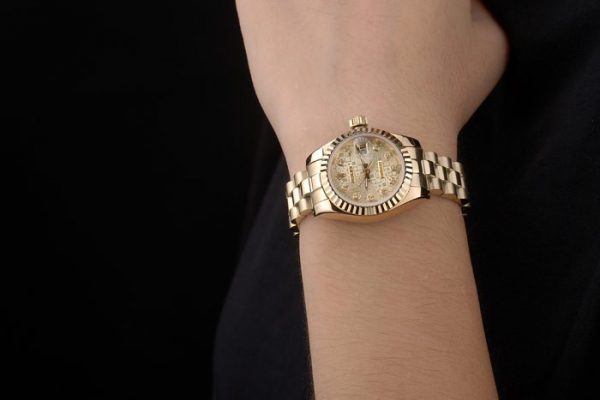
When selecting a watch, the mechanism inside is just as important as the design and aesthetics. The watch mechanism, or movement, determines how well the timepiece functions and can significantly influence its accuracy, longevity, and overall quality. With various types of watch mechanisms available, understanding how to identify and choose a quality one is essential for any buyer, whether you’re a seasoned collector or a first-time buyer. This article will guide you through the process of evaluating watch mechanisms, helping you make an informed decision.
Understanding Watch Mechanisms
Watches are primarily powered by two types of mechanisms: quartz and mechanical.
-
Quartz Movements
Quartz watches are powered by a battery that sends an electrical signal through a quartz crystal. This causes the crystal to vibrate at a specific frequency, ensuring high accuracy. Quartz watches are known for their reliability and require minimal maintenance compared to mechanical watches. They often feature a simpler design and are more affordable, making them popular choices for everyday wear.
One notable advantage of quartz movements is their accuracy, which can deviate by only a few seconds each month. This precision makes quartz watches an excellent option for those who prioritize timekeeping above all else. Brands like Cezeno offer a range of stylish smartwatches that incorporate quartz technology, ensuring both reliability and functionality.
-
Mechanical Movements
Mechanical watches, on the other hand, rely on intricate gears and springs to keep time. They can be further divided into two categories: manual and automatic.
- Manual Movements: These require the wearer to wind the watch regularly to maintain its power reserve. Manual watches are appreciated for their craftsmanship and the tactile experience of winding the mechanism.
- Automatic Movements: These watches wind themselves as the wearer moves their wrist, thanks to a rotor that harnesses kinetic energy. Automatic movements combine the charm of mechanical engineering with the convenience of self-winding.
Mechanical watches are often considered a luxury due to their intricate designs and the craftsmanship involved in creating them. They are favored by collectors who appreciate the artistry and heritage of watchmaking.

Key Factors to Consider When Choosing a Watch Mechanism
-
Purpose and Lifestyle
Consider how you plan to use the watch. If you need a timepiece for daily wear or sports activities, a quartz watch might be the best choice for its accuracy and low maintenance. On the other hand, if you appreciate the art of horology and want a watch for special occasions, a mechanical watch may better suit your needs.
-
Brand Reputation
Research the brand’s reputation for quality and craftsmanship. Brands with a history of producing reliable timepieces often invest in quality movements. Look for reviews and feedback from other customers to gauge the performance of their watches.
-
Water Resistance
If you plan to wear your watch during activities such as swimming or diving, ensure that the mechanism is housed in a water-resistant case. Quartz watches typically offer better water resistance, while some mechanical watches may have limited capabilities. Check the watch’s specifications to confirm its water resistance rating.
-
Maintenance and Serviceability
Mechanical watches require regular maintenance to ensure they function optimally. Consider how easy it is to find service centers and replacement parts for the brand you are considering. Quartz watches usually require battery replacements but are generally easier to service.
-
Aesthetic Appeal
The movement can affect the watch’s design. Some mechanical watches feature transparent case backs, allowing you to admire the intricate movement. If aesthetics are essential to you, consider how the mechanism fits into the overall design of the watch.
How to Identify Quality Mechanisms
When assessing a watch mechanism, look for these indicators of quality:
-
Smooth Movement
In quartz watches, the second hand should move smoothly and continuously, rather than ticking in discrete steps. In mechanical watches, the movement should feel smooth when winding or setting the time.
-
Craftsmanship
Examine the watch’s components. High-quality movements will have fine detailing, polished finishes, and no visible flaws. Look for engravings or stamps that indicate the brand and movement type.
-
Transparency
If possible, choose a watch with a transparent case back. This allows you to see the movement and evaluate its quality. A well-finished movement with attention to detail is a hallmark of quality.
Conclusion
Choosing a watch mechanism is a vital step in selecting the right timepiece for your needs. Whether you opt for the precision of a quartz movement or the artistry of a mechanical one, understanding the differences and quality indicators will enhance your purchasing experience. Brands like Cezeno offer a variety of watches with reliable mechanisms that cater to different lifestyles and preferences. By taking the time to evaluate your options and consider the factors outlined above, you can find a watch that not only meets your practical needs but also resonates with your personal style. The right watch mechanism can elevate your timepiece from a mere accessory to a cherished companion, reflecting both your taste and values.





